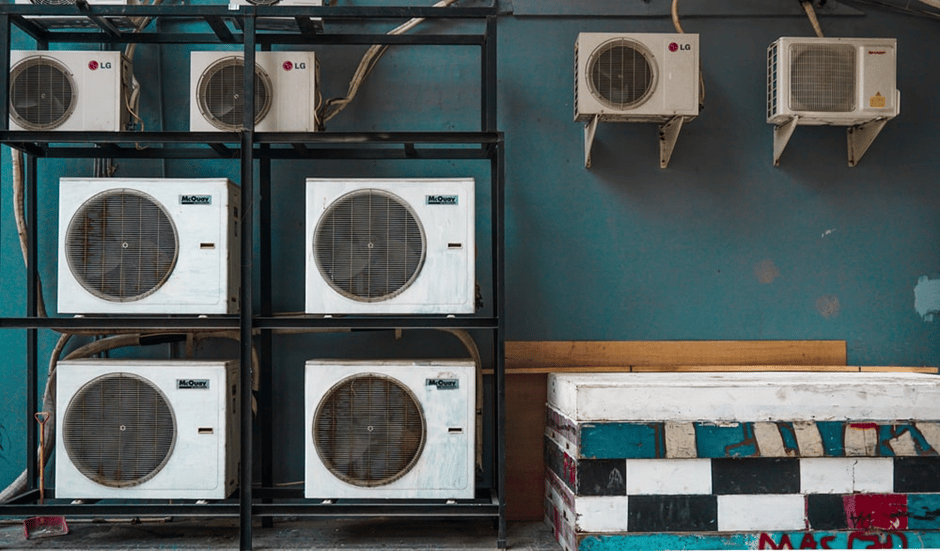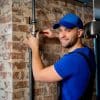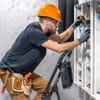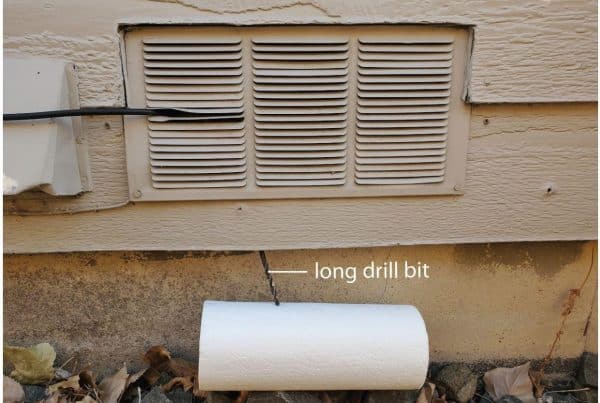
Source: https://unsplash.com/photos/Rr4rmrcqRYE
Heating and cooling systems are an all-year-round household necessity. They help homeowners cool their homes during summer and warm during winter. However, with continuous use, air conditioners experience a lot of strain, leading to reduced efficiency and system breakdowns. Homeowners should practice regular maintenance to identify possible problems and schedule a routine air conditioner repair.
Why Is HVAC Maintenance Important?
Heating and cooling units require proper care to function optimally and extend their lifespan. Below are some benefits of maintaining your unit;
- Lowers utility bills – Reducing energy consumption is probably the main reason you should maintain your HVAC unit. A properly functioning AC unit coupled with a properly insulated house significantly reduces heating and cooling costs.
- Healthy indoor air – Adequately maintained HVAC units will maintain not only indoor temperatures but also the air quality. Clean filters and coils improve the quality of indoor air. Poorly maintained units can circulate dirty air, bacteria, fungi, mold, and other pathogens. This can cause or worsen respiratory conditions for household occupants.
- Increases the systems’ lifespan – Maintaining your HVAC unit increases its lifespan. Considering the expensive nature of buying and installing HVAC units, it makes a lot of sense to ensure that it remains in shape for years.
- Save money – Apart from reducing energy bills, frequent maintenance prevents costly breakups, extends the systems’ lifespan, and ensures that you stay protected by the warranty. Regular inspection and maintenance reduce the risk of expensive breakdowns by 95%.
- Keeps your home safe – Preventive maintenance also safeguards your house from the risk of carbon monoxide exposure, which can be fatal. Carbon monoxide from HVAC units often occurs from leaks in a failing or cracked heat exchanger. HVAC maintenance often includes a carbon monoxide test, which detects the levels of this respiratory hazard.
HVAC Preventive Maintenance Activities
Below are the crucial HVAC maintenance tasks to prioritize:
1. Change the Air Filter
Changing the air filter is another crucial HVAC preventive measure. Replacing a dirty or clogged single-use filter is a straightforward way of ensuring that your unit works efficiently, doesn’t consume much energy, and minimizes possible repairs.
The air filter should be checked at least every month for accumulating dust, dirt, and debris. If the filter is partially soiled, it should be washed and air-dried. However, it should be changed every three months or less for households with pets. A dirty AC filter can thaw and cause water damage.
If your air conditioner has a reusable air filter, it should be cleaned with mild soap, water, and a soft cloth. Households with highly sensitive occupants should use HEPA or hypoallergenic filters that purify incoming air.
2. Cleaning the Heat Pump or Condenser
Outdoor HVAC components have heat pumps and a condenser, which can trap dust and get dirty. This strains the system, forcing it to work harder to produce the required warm and cold air. Cleaning heat pumps and condensers reduces the risks of damaging internal components.
You should ensure that there is no dirt and accumulating debris lying at the top or side of outdoor units. Use the garden hose through the fins to ensure that the areas between the crevices are clean. You should also double-check to confirm if the unit is at level. If the unit bends to one side, the refrigerant, which is critical to AC functioning, becomes disjointed. This increases the risks of the compressor and condenser breaking down.
3. Schedule Annual Professional Checkups
Scheduling annual checkups by professional Indianapolis HVAC technicians can also lengthen the lifespan of your air conditioner. Experienced technicians can examine your HVAC unit to ensure that it functions optimally. Inspection by a technician can involve;
- Cleaning AC coils
- Checking and possible change of air filter
- Cleaning unit drain lines
- Checking for heat exchanger leaks
- Ensuring that the fan works correctly
Most HVAC manufacturers provide follow-up check ups once a year. Even then, homeowners are supposed to schedule an inspection with heating and cooling companies annually.
4. Installing a Smart AC Controller
Making your old AC system smart allows you to access modern features that contribute to preventive maintenance. For instance, installing smart AC controllers will allow you to monitor the units’ usage history, receive alerts about the air filter condition, and more.
Some thermostats also detect if the AC isn’t functioning optimally and poor indoor air quality. These are crucial signs of a poorly functioning HVAC unit. Other modes, such as geofencing and scheduling, allow homeowners to activate their AC systems at set times and locations. With this, your system won’t run unnecessarily or waste energy.
Endnote
Ignoring HVAC maintenance increases the probability of system failure. If the unit fails, you might have to replace the heat pump, furnace, air conditioner, or the entire unit. Heating and cooling system repair can cost homeowners between $8,000 and $15,000. These costs are dependent on the size of the air conditioner, efficiency levels, features or technology chosen, and air conditioner service contractor chosen. For this and other reasons mentioned above, homeowners shouldn’t neglect routine HVAC maintenance.







